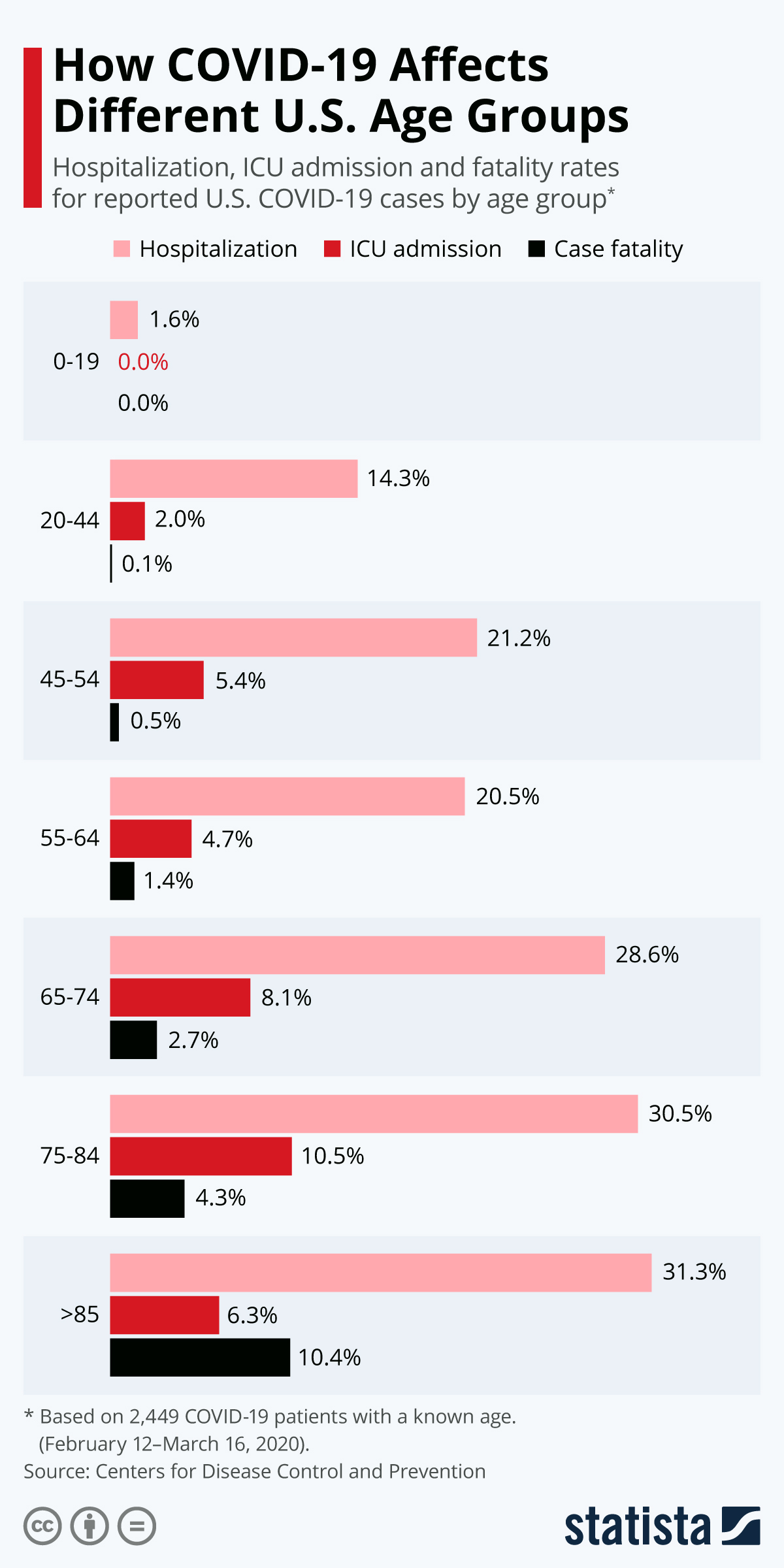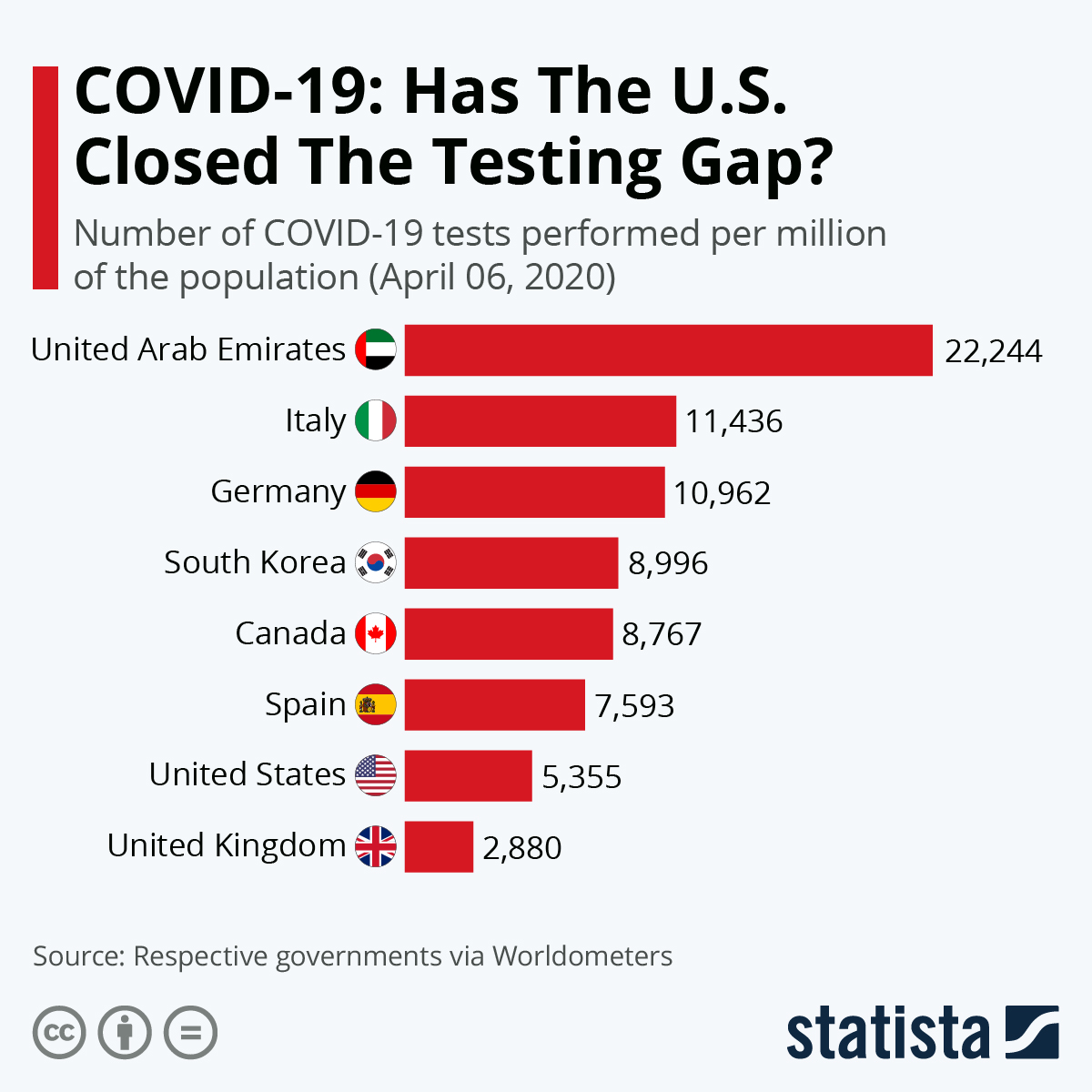VIDEO: How Restaurants Can Survive the Coronavirus Epidemic
Last Thursday, we hosted a video live-chat about the gravity of our industry’s current situation and what operators can do to survive this major disruption in business that COVID-19 has created. We went over legal aspects to consider, ways of lowering your monthly bills, ideas for how to make any money while you’re dining hall is closed, and more. You can watch the unedited stream here.
If there was a question you had that didn’t get answered, contact us and we’ll be happy to help.
DID YOU KNOWS…
How COVID-19 Affects Different Age Groups
Like in other countries badly impacted by the virus such as China and Italy, COVID-19 is having the most severe impact on America's elderly. The CDC found that 31% of all cases, 45% of hospitalizations, 53% of ICU admissions and 80% of all deaths from the illness occurred among adults aged 65 or over with the highest percentage of severe outcomes happening among those aged 85+. The findings are similar to Chinese Center for Disease Control and Prevention data which found that 80% of all deaths occurred among people aged 60 and above.
US Way Behind in COVID-19 Testing
A mixture of widespread testing, social distancing measures, quarantine and effective tracing has led to South Korea stabilizing their serious outbreak and other countries have been emulating their approach to the pandemic. The most recent government data was compiled by website Our World in Data and it shows that by March 17, South Korea had carried out 5,567 tests per million of its inhabitants while the U.S. had only conducted 125 tests per million people by March 16. Even though the U.S. number should climb steadily over the next couple of days, it is still cause for serious concern.
Traffic Down 48%
According to OpenTable, restaurant traffic is down 48% (year over year) during the coronavirus crisis. This shouldn’t be too surprising considering the number of “social distancing” and “self-quarantining” going on across the US. Some areas have even implemented “shelter-in-place” to try to curb the coronavirus cases being dealt with. Here’s a breakdown of how the pandemic is affecting traffic on a state and city level, too.
Coronacrisis: Day 11
WITH A LITTLE HELP FROM MY FRIENDS [Song]
Why it matters to you: Do what you can now to help your team and they will be there when this ends!
No doubt there will be some ugly stories that get revealed as we all contend with this world-wide pandemic. For so many of your teammates, this will be a devastating loss to their income. So, when there is a feel-good story, we believe there is an obligation to share it. Such is the case with a Boston-based radio host Greg Hill and Boston Beer Company of Sam Adams fame. Together they have created a fund that will give $1,000 grants to deserving restaurant staff who apply.
They have created a donation structure where those that can afford to share can contribute a few bucks to the fund. While a thousand bucks is a lot of money, it is less when you know there won’t be income for, at minimum, the next several weeks.
These guys aren’t the only ones taking steps to bring relief to vulnerable restaurant workers. This list of support efforts on Eater is a great starting point for anyone that needs help or knows someone that does. As an employer, there are some other things you can do to support your displaced staff.
For example, lay them off! Do that and they can apply for unemployment compensation. These are tough times and allowing your staff to access those benefits will extend how long they can make it. The goal is to have staff available when this chaos ends. Keep in communication with them, support them in finding benefits wherever you can, and they will remember that when things return to normal…or whatever normal will look like after this disaster.
[Source: The Greg Hill Foundation]



